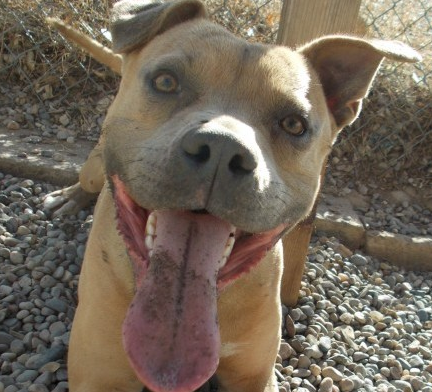Of the 20,000 animals who’ve crossed Nina Stively’s path in her years as Outreach Manager at the Espanola Valley Humane Society (EVHS), only two have struck her as a very particular type of extraordinary. Rio, an adult intact male of Pit Bull-ish pedigree, was one of them.
He arrived at the shelter on a cold January afternoon as a stray, picked up…





